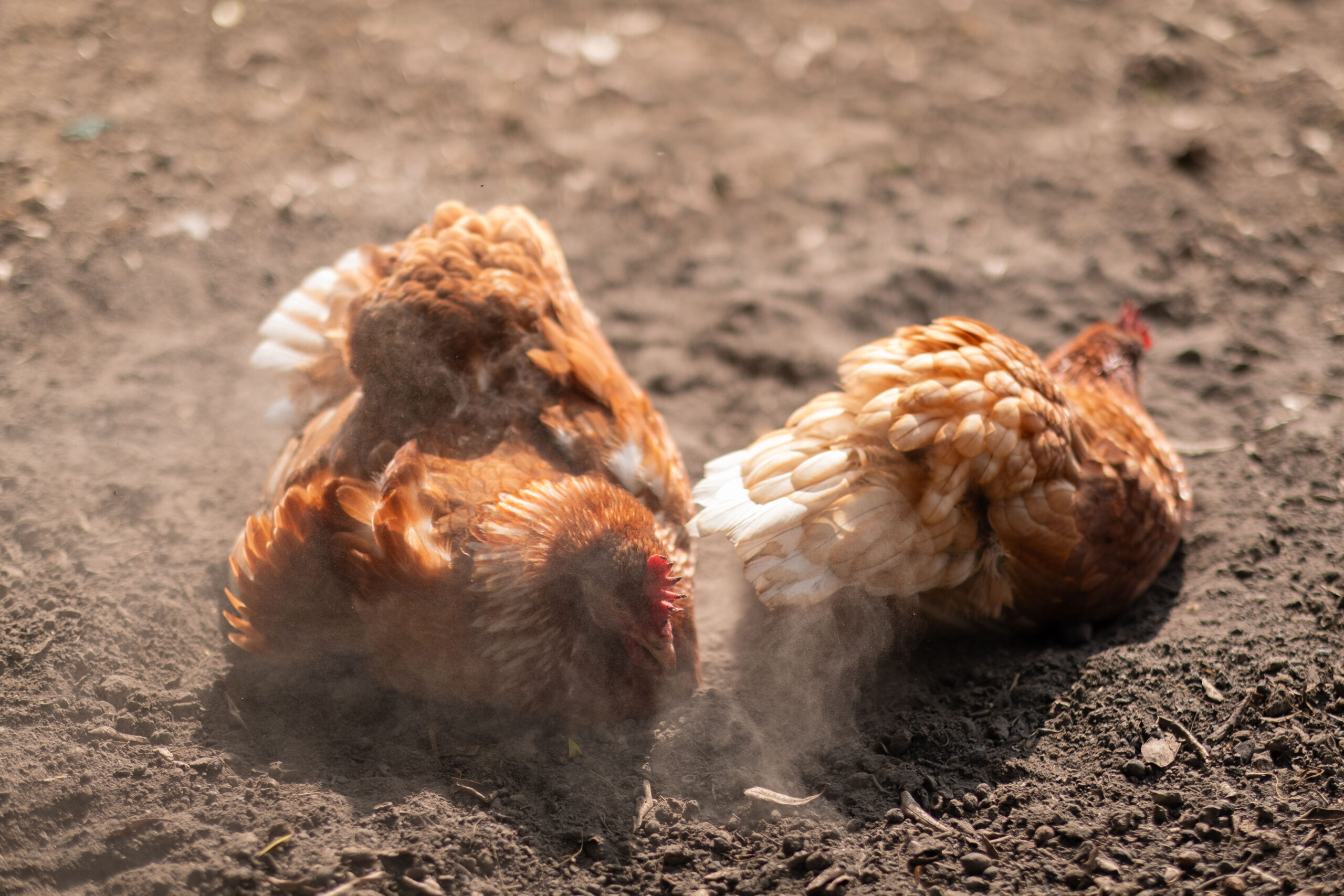Happy Healthy Backyard Chooks
Notes prepared by Jessamy Miller, 2025
Chooks are easy care pets that offer you eggs, garden fertilizer and fun! While low management, they will be happiest when their needs are met: secure housing, space for natural behavior, good hygiene, activities to keep them busy, a nutritious diet, and a health plan.
The first step is always to check online for your local council guidelines.
Chicken Basics
Chickens are social and best kept in groups of three or more. Purebreds live 4-8 years, hybrids 2-4 years. Purebreds lay in spring and summer, moult feathers in autumn, and rest in winter. Hybrids lay year round.
Best Breed
Bantams are perfect for smaller spaces. Hybrids are the best layers, and cheap cheerful starter chooks. Good purebred layers include Anconas and Langshans, good pets are Pekins, Silkies and Australorps, while backyard beauties are Wyandottes and Hamburghs and Araucanas.
New Hens
Source from Gumtree, large hatcheries on Facebook, or from breeders and breed clubs. Best age is point of lay (POL), around 18 weeks, as young hens about to lay. Always introduce 2+ new hens at a time, and add them at night.
Safe Housing
Keep birds safe at night in a lock-up henhouse. It could house birds inside full time as a deep litter setup, or have an attached wire run for daytime, or birds could free range during the day, or it could be a movable tractor.
The henhouse must protect hens from foxes, dogs, cats and aerial predators, and keep out pesky wild birds and rodents. It needs a lock-up door, a concrete or wooden floor, and secure walls and roof. It should offer shade, protection from rain and wind, plenty of ventilation and be well lit. Larger henhouses can house birds in bad weather and are easier to clean.
An attached run will be safer with a mesh roof, and a wire skirt dug in 35cm.
Space
Hens need space to express natural behaviours – to perch, nest, scratch, and flap wings! Allow 0.5m2 per bird in the henhouse and 1m2 in the run. Birds need a dust bath area, bushes or protective cover, a square 2×4 wooden perch or two, room to escape bullies, and options for exercise, scratching etc. Provide one nest per three hens, or a communal nest to share.
Hygiene
Keep the henhouse sensibly clean and provide a nice soft litter to keep it dry and fresh smelling. Remove manure from nests and under perches regularly, and do a full clean-out twice a year. Provide traction in wet weather with tanbark or pea straw. Scrub out waterers regularly, and keep nests clean.
Feed
Chooks love to eat! A nutritious diet will improve immune function and help a bird fight off health challenges and meet its laying potential.
The basic hen diet is layer grains, pellets or mash, a handful of scratch, scraps to fossick through, greens such as fresh grass, plus plenty of shell grit. Scraps are good for entertainment but chooks won’t lay as well if they eat too many scraps or treats as pellets are more nutritious.
Hens need cool clean water – make sure dish is clean and keep it cold in summer. Larger water containers are better than nipple setups.

Environmental Enrichment
Chooks are happiest with meaningful occupation or environmental enrichment eg bale of pea straw, a dustbath, a mirror, a swing, and hanging greens. They love scratching so put them to work pecking through scraps and weeds then move these into the compost.
Use chooks in the organic garden to dig up vegie beds before planting and again after the harvest to remove weed seeds and insects.
Use under fruit trees to attack codling moth.
Protect hens and the garden – direct hens to where you need using netting or tractors or pay the price! Make sure hens have no access to poisonous plants. Compost high nitrogen chicken manure for six months before using.
Health and Behaviour
Chooks will be happiest and healthiest if they have good nutrition, plenty of space and are not bored or stressed. However, parasites, diseases and accidents can occur; you may need veterinary attention at those times so be prepared to go to a good bird vet occasionally.
At home, you can offer an ill bird supportive care: put in quarantine and only return to the flock once they are fully well. Offer evidence based nutrition support like poultry vitamins and avoid mixing remedies!
Chooks are part of a flock dynamic and sometimes have bad habits: bullying, feather pecking, egg eating. Similar temperament birds get along better.
Removing the ringleader for a week or two then returning her may help. Also check their nutrition is sufficient and they have plenty to do.
Today’s Action
If you have chooks, introduce a new environmental enrichment into their pen!
More Information:
Happy Hens (Published by ABC Books & HarperCollins)
ABC’s Organic Gardener magazine
Gail Damerow’s Chicken Health Handbook


